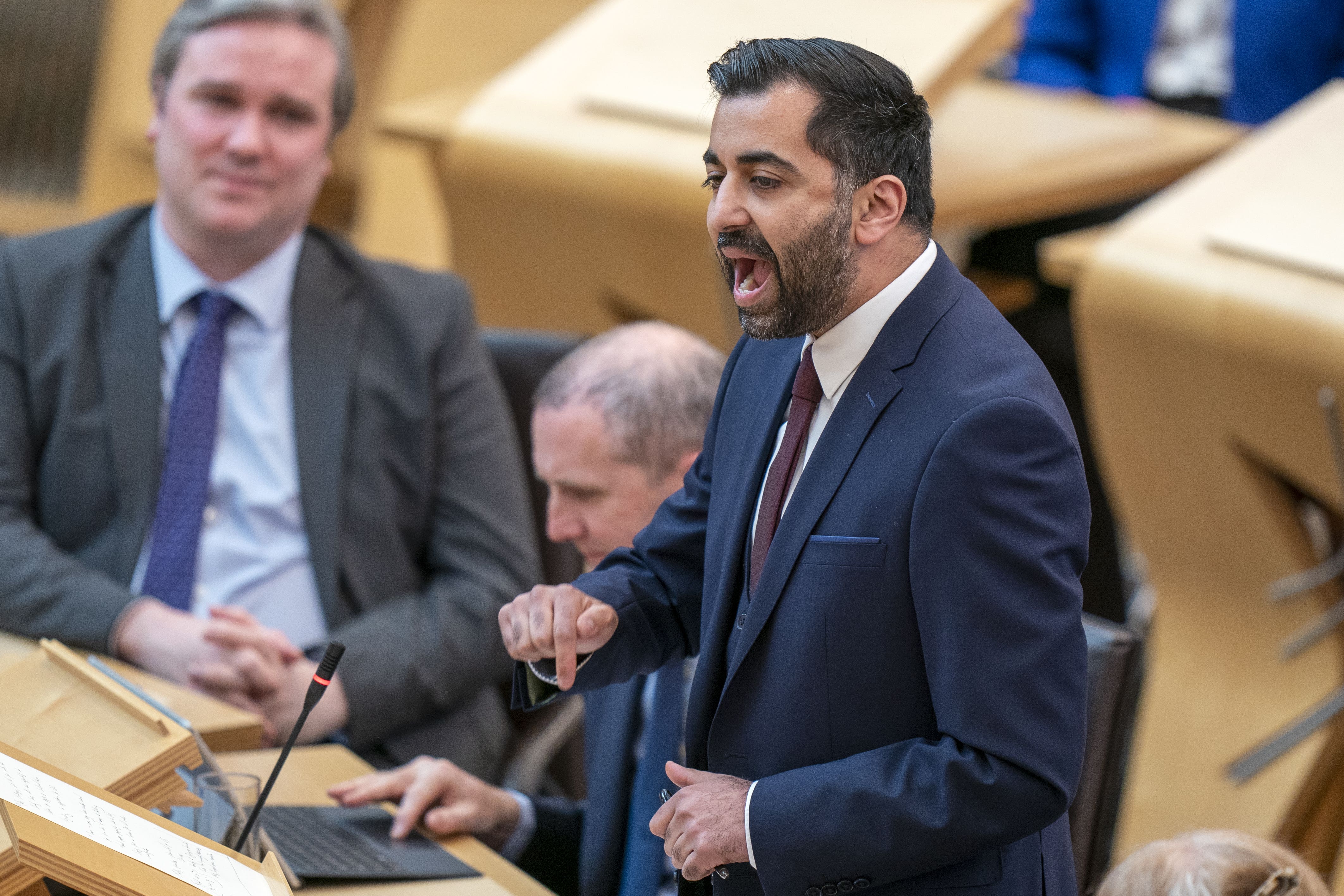The ‘fresh start for Scotland’ has turned into an episode of The Thick of It
‘Of course I’m surprised that one of my colleagues has been arrested,’ Yousaf unwisely told a scrum of reporters. Malcolm Tucker would have exploded, writes Andrew Grice


The “fresh start for Scotland” promised by Humza Yousaf when he set out his agenda as the country’s first minister turned into an episode of The Thick of It, farcically overshadowed by the arrest of Colin Beattie, the SNP treasurer. “Of course I’m surprised that one of my colleagues has been arrested,” Yousaf unwisely told a scrum of reporters. Malcolm Tucker would have exploded.
Although you couldn’t make it up, there are more episodes to come. SNP figures fear Nicola Sturgeon will be arrested soon; she is the only senior person named on the party’s most recent accounts not to be arrested yet. Today, Kate Forbes, narrowly defeated by Yousaf in the SNP leadership election, demanded “decisive and quick action” over the “mind-blowing” revelations about the party’s finances, which prompted Police Scotland’s investigation.
Forbes warned that voters are watching extremely closely. Indeed, many Scots might ask: if the SNP cannot run the comparative whelk stall of a party, how on earth can it be trusted to run a government? In turn, that will invite a look at the SNP’s patchy record in 16 years in power, which it has been very good at diverting attention from – often by blaming the country’s problems on the UK government. It won’t be so easy from now on.
Some images are so powerful that even the passage of time does not erase them. Sturgeon’s legacy in the public’s mind will not now be her remarkable record of eight election victories or her solid performance during the pandemic, but the TV pictures of the police forensic tent outside her home. The Thick of It meets Silent Witness. Her legacy tarnished, it would be much harder for the pro-independence campaign to deploy her in any future referendum – not that there is any prospect of one for many years now.
Yousaf looks holed below the waterline. The last thing his party needs is a Sturgeon continuity candidate, his pitch in the leadership contest. “It’s the continuity of the graveyard,” one SNP figure told me.
The new SNP leader needs to do what Sturgeon did to her predecessor Alex Salmond, and what Keir Starmer has done to Jeremy Corbyn: operation distance. Yousaf tacked to the left in his speech as he promised higher taxes and kicked some of Sturgeon’s policies into the long grass, but his tweaks to Sturgeon’s policies will be overshadowed by the police investigation. He will need to make a dramatic move, like suspending Sturgeon, for the voters to take him seriously.
Salmond, who fell out spectacularly with his protege Sturgeon over allegations of sexual assault, on which he was cleared, might have the last laugh in his battle with her. The tension between them began when Salmond and other SNP figures warned Sturgeon when she became leader it would be unsustainable for her husband Peter Murrell to continue as the party’s chief executive.
They unwisely ignored the advice and ran the party machine in a command-and-control system in which those with doubts were reluctant to speak out, fearing they would be accused of undermining the quest for independence. It is revealing that when another treasurer, Douglas Chapman, took over between Beattie’s two terms, he quit on the grounds he did not have proper access to the accounts. If that warning sign in 2020 had been heeded, the SNP might not be in a deep crisis today.
The party will struggle to recover anytime soon. From its commanding position, from winning 48 of Scotland’s 59 seats in 2019, the only way is down at next year’s general election and very possibly at the next Scottish parliament elections in 2026.
Other pro-independence parties (the Greens and Salmond’s breakaway Alba Party) claim their movement will not necessarily be damaged by the SNP turmoil. Officials point to support for independence appearing stable at 47-48 per cent, even though the SNP’s poll ratings have dipped – the opposite of the bounce a new party leader would expect. The SNP is so dominant within the movement that it is hard to see how the Yes camp could increase support for independence to the 60 per cent mark needed to put pressure on the UK government to answer the question: when can Scotland exercise its democratic will?
The political wheel has turned full circle. Labour dominated the Scottish landscape, winning the biggest share of the vote at every general election between 1964 and 2010. In 1997, Labour won 56 of the then 72 constituencies to the SNP’s six. Today Labour has just one Scottish MP.
Senior Labour figures sense that history is repeating itself. “We took the people of Scotland for granted,” one former cabinet minister admitted. Lesson: there is always somewhere else for voters to go. The SNP has now made the same mistake, through a combination of arrogance and hubris at the very top. Scottish voters will again find somewhere else to go, and this time Labour will be the main beneficiary.



Join our commenting forum
Join thought-provoking conversations, follow other Independent readers and see their replies
Comments